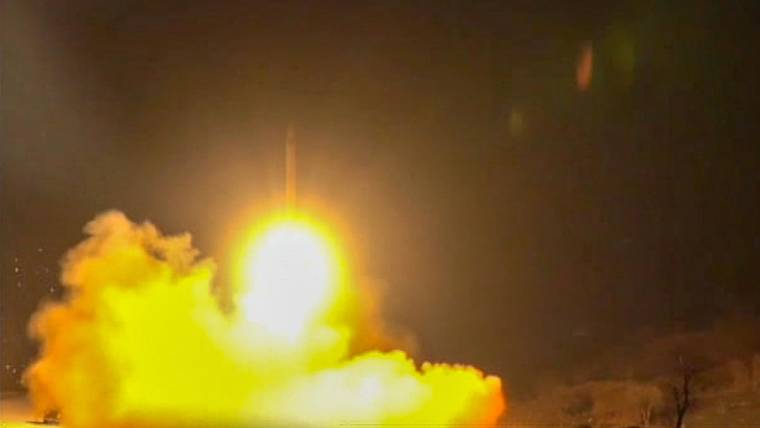President Donald Trump will address the nation Wednesday morning, less than a day after Iran retaliated for the killing of a top general by firing more than a dozen ballistic missiles at two Iraqi air bases housing U.S. forces.
Trump will deliver his remarks from the White House Grand Foyer at 11:00 a.m., the White House said.
Two senior administration officials told NBC News that Trump has spent part of his morning in the Situation Room meeting with top officials including Vice President Mike Pence, Secretary of State Mike Pompeo, Defense Secretary Mark Esper and Gen. Mark Milley, chairman of the Joint Chiefs of Staff.
Let our news meet your inbox. The news and stories that matters, delivered weekday mornings.
Pence will attend Trump’s remarks, the White House said. Administration officials told NBC News they are — at this point — expecting top national security officials to join the president, as well.
Officials also expect that later Wednesday, Trump will confer with allies as he continues to monitor the developments.
Overnight, sources told NBC News that Trump remained with his team into the evening, and that he and Pence also made calls to key lawmakers — both Republicans and Democrats — about the Iranian attack.
Washington and Tehran both confirmed that Iran was the source of the missiles launched at military bases hosting U.S. and coalition forces. The extent of any causalities or damage was not immediately clear.
One of these was the Ain al-Asad air base, which is around 100 miles northwest of Baghdad and was visited by Trump in 2018. The Pentagon did not directly name the second base but said it was in or around Irbil, Iraq’s second largest city in the Kurdish-run north of the country.
There were no reports yet of casualties or damage at the two bases.
The attacks at 1:20 a.m. local time (5:30 p.m. ET on Tuesday) came after Iranian leaders had promised “revenge” and “harsh retaliation” for the death last week of Gen. Qassem Soleimani, who the U.S. killed with a drone strike in Iraq.
The U.S. blames Soleimani, a high-profile commander of Iran’s secretive Quds Force, for a spate of rocket attacks in recent months, including one that killed a U.S. contractor in late December.













